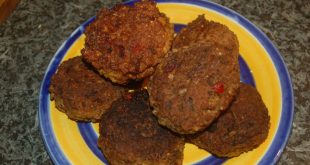Maureen Robertson
I have been getting stomach aches recently, maybe for two or three months, every time after a meal. The ache comes on about 30 minutes after I’ve eaten and I can’t seem to eat any spicy food lately. Are there foods I should stay away from, and which herbs may be beneficial?
It sounds like you might be suffering from inflammation of the stomach mucosa lining and, when the stomach acids and other digestive juices and enzymes are released on the introduction of food into the stomach, the resulting relatively acidic environment will be aggravating the sensitive stomach lining. Spicy foods with their associated energetically hot quality would also aggravate any problem with this mucosa lining.
As stress is behind the origin of most illnesses (and it certainly exacerbates any symptoms of conditions we might have a tendency towards), the first thing to consider is what might have been happening to you prior to the onset of the stomach ache symptoms – a recent change in lifestyle, an acute illness, a major life event, moving house etc. If you can make an association with something which has challenged you on a psychological/emotional/ spiritual level, you can start to understand how you may have manifested it physically.

In the meantime, while you are finding ways to accept and process any life event, you can help yourself by favouring cooling, moistening foods like cucumber, avocado, yoghurt, salads and fruits (not strawberries, rhubarb and oranges which are all foods that heat you up) and using fresh herbs, like coriander, parsley and mint, which all have a cooling effect. Foods to avoid would be those which cause acidity in the body, such as animal products, processed food and spicy foods containing Chili and Garlic. Fermented foods might also be initially aggravating, such as pickles, chutneys and vinegars. An amazing herb tea blend of camomile (Chamomilla recutita), peppermint (Mentha piperita), and meadowsweet (Filipendula ulmaria) works wonders as a stomach healing tea – three herbs work synergistically together to be more beneficial than when used individually. Other useful herbs for tea would be marigold (Calendula officinalis), comfrey leaf (Symphytum officinale), marshmallow (Althea officinalis) and liquorice root (Glycyrrhiza glabra), although, in this latter case, not if you have high blood pressure. Marigold would be particularly appropriate, being a major anti-inflammatory herb as well as being a supreme healer of any sensitive or acid/heat damaged mucosa. It is important to use teas and not tinctures as the alcohol in these extracts would have a heating effect. It might be possible to use boiling water to dilute a tincture of any of these herbs (to allow the alcohol to be burned off), but with herb teas that taste as good as these ones mentioned, why would you want to miss out on using them in this form?
Chewing fennel seeds, coriander, caraway, cumin or aniseed, or making tea of these would also help with resetting indigestion and can help with any trapped wind causing cramps due to their carminative action.
A good website which lists the types of foods that would cool a fiery condition is www.ayurveda.com where they have a really useful online resource informing you of all the foods, herbs and drinks that can benefit a high pitta condition like stomach inflammation. It is also useful to include a small amount of ginger (Zingiber offinale), which can help reset stomach energetic digestive fire (agni in Ayurveda).
It is important that you are mindful of addressing this issue you are experiencing, as leaving the condition to continue untreated could lead to a stomach ulcer (which could lead to digestive bleeding) as the worst case scenario.
 Eco123 Revista da Economia e Ecologia
Eco123 Revista da Economia e Ecologia


